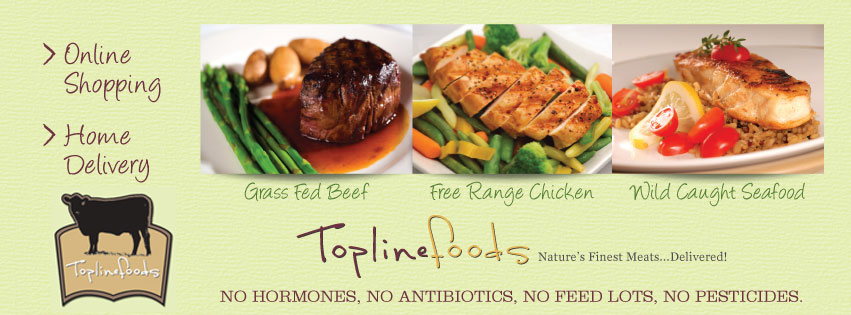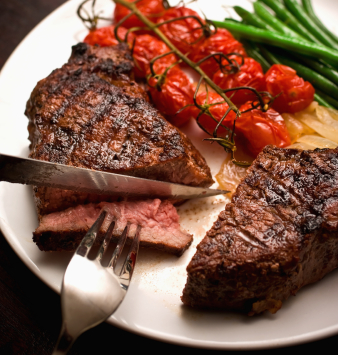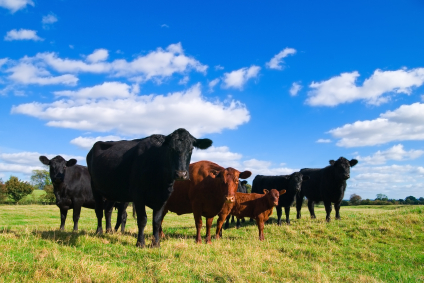 Loading... Please wait...
Loading... Please wait... Loading... Please wait...
Loading... Please wait...
The biggest thing to remember about the food industry is that it is an industry. Their purpose isn’t to poison you, but neither is it to keep you at your healthiest. Their purpose is to make as much money as quickly as possible. It makes more business sense to focus on hooking the next generation on their products than it does to help you live to 120. Almost everything added to food is designed to increase profits in one of three major ways; by making production cheaper, by making the end product more addictive or pandering to consumer trends. The consumer’s long term interests are a distant, secondary concern. Even medicines and supplements, things designed for human health, can have dangerous and sometimes unpredictable side effects. How much can you expect from additives that aren’t even meant to help you?
More than just about anything, companies want to reduce the cost of making the food so that they can make a higher profit on each sale, or can reduce their prices competitively to get more customers. Many of the choices that food companies make have nothing to do with customer health or even customer preference; they are made simply to create a cheaper, more easily mass produced product. Grain feeding animals instead of letting them roam free on a pasture, for example, allows the company to raise more animals on less land, and makes the animals grow up and put on weight more quickly, even if it does serious damage to the nutritional value of the end products. Raising grass fed beef with freedom to roam in grass pastures and never administering antibiotics or growth hormones is better for the cattle and better for you, even if it does take longer for the animals to reach maturity. Fruits and vegetables are doused regularly in potentially harmful pesticides and herbicides to maximize the yields, and chicken breasts in the supermarket are injected with salt water in order to increase their weight and make them sell for more.
 If buying grass fed beef online at Topline Foods costs a little bit more than the grocery store, it’s because we know that our customers wouldn’t thank us for sacrificing flavor or nutrition to make it seem like a better bargain. Raising grass fed beef in nature’s way on pastures without antibiotics, hormones, or growth promotants does cost more. We are always looking for new interventions to increase operational efficiency, save money and provide a more convenient service, like our flash freezing process which preserves the meat without additives of any kind, our vacuum sealed, single serving packaging, and our home delivery system. However, we vow to never compromise our dedication to quality along the way.
If buying grass fed beef online at Topline Foods costs a little bit more than the grocery store, it’s because we know that our customers wouldn’t thank us for sacrificing flavor or nutrition to make it seem like a better bargain. Raising grass fed beef in nature’s way on pastures without antibiotics, hormones, or growth promotants does cost more. We are always looking for new interventions to increase operational efficiency, save money and provide a more convenient service, like our flash freezing process which preserves the meat without additives of any kind, our vacuum sealed, single serving packaging, and our home delivery system. However, we vow to never compromise our dedication to quality along the way.
By this point, most companies have mass produced a whole lot of subpar food, in the name of cost effectiveness. Their product will probably only ever be average at best, so how to gain the customer loyalty they need to thrive? When people have so many bland, unimpressive options bombarding them in the supermarket, they mostly rely on impulse and habit, so shaping and controlling people’s reflexes becomes a major key to success. Most of the time they achieve this in relatively harmless ways, brand recognition, advertising to kids, controlling shelf space, etc. But sometimes the subliminal messages move into the food itself.
For example, the refined, white table salt that spikes the sodium content in most foods has been drained of its natural mineral content. This confuses your body; it keeps craving salt because it never receives any of the minerals it’s actually looking for. The more salt you crave, the more salty foods you buy, which means more money for anyone who laces their food with extra salt. A number of other additives work on the same principle, focus on temporarily satisfying cravings, and exaggerating them in the long term. High fructose corn syrup, excess sugar, and chemicals like MSG are all culprits.
At Topline Foods, we don’t have to sneak around to get our customers to come back for more of our grass fed beef, organic chicken and wild caught seafood. Your mind and your stomach will agree, this is good stuff, pure and simple. No secret ingredients needed.
Given that corporations can get a lot of people to buy their products just on automatic, they rarely have to appeal to reason, and because their products tend to be as cheap as possible, it’s often in their best interest to keep people in the dark about their products. But every now and then, something comes to light which upsets consumers so much, they threaten to break the cycle and consciously avoid certain foods. The general response is to change only as much as they absolutely have to.
Food companies, therefore, are generally only as concerned about nutrition as the average American is knowledgeable. In other words, hardly at all. At least not compared to the actual chemical complexity of the human body. It’s a system so detailed, nuanced and intricate that the world’s leading scientists haven’t even come close to figuring out exactly how to care for it. For those of us who don’t have time to get a PHD in Nutrition Facts labels, our understanding is based mostly on rules of thumb, a collection of instinct, common sense, inherited words of wisdom, rumors, internet opinions, half-remembered health classes, and news stories. And if the industry can fake their way around that, they’re in.
Most people think that you can tell if meat is fresh by how red or pink it is. You used to be able to. Now food companies frequently treat beef with carbon monoxide, or deliberately feed arsenic-based drugs to chickens in order to make their meat look better than it actually is. The food industry would much rather avoid labeling an unpopular additive than avoid using it. Many products hide some of their ingredients in vague descriptions like “natural flavorings”. Others change their serving sizes to take advantage of the loophole that says anything less than point-five percent can be labeled as zero percent. Some will go so far as to lobby the FDA to change the name of an additive to a new euphemism, buying themselves time before the public realizes nothing has changed.
Even so-called positive additives aren’t always what they seem. Many miracle ingredients have been overhyped, over-commercialized, and taken completely out of context as companies try to take advantage of the next big target word. Research which shows that “A diet high in X is good for Y function” does not mean that you can put concentrated X into anything to make it instantly healthy. There are too many variables to account for and digestion is an incredibly complex chemical process. Nutrients will combine, react, catalyze and digest differently depending on what other nutrients are around it at the time. Eating a bowl of Choco-Bits, now enhanced with fiber and Omega-3, will never be the same as eating an actual piece of wild caught salmon and a salad.
 So, how do you avoid the marketing tricks and additives in your meats? Shop Topline Foods online with confidence that all our products including grass fed beef, organic chicken, wild caught seafood – and more – are free from all the antibiotics, additives, hormones and more big food industry wants you to believe is ok and normal.
So, how do you avoid the marketing tricks and additives in your meats? Shop Topline Foods online with confidence that all our products including grass fed beef, organic chicken, wild caught seafood – and more – are free from all the antibiotics, additives, hormones and more big food industry wants you to believe is ok and normal.
At Topline Foods, we believe the fewer ingredients in our food, the better it will be for you and your family. Take a look at the ingredient list for our grass fed beef – “100% natural all grass fed beef, no antibiotics, no hormones, no steroids, pasture raised - no feed lots!” That’s as good as it gets – just 100% grass fed beef, nothing more is needed for the absolutely highest quality and healthiest grass fed beef. Shop our grass fed beef online today, you’ll be glad you did!

Call us 480-799-2624
Copyright 2026 Topline Foods.